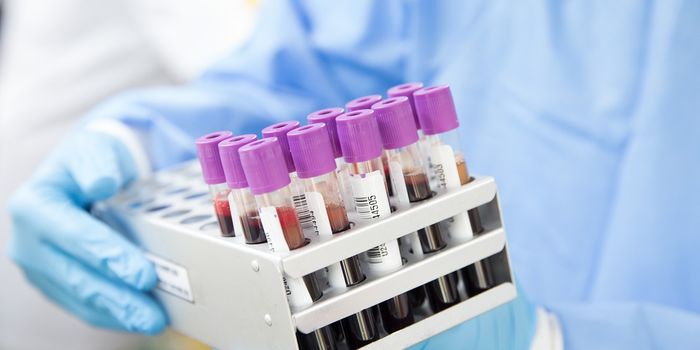Bone marrow transplant patients face many challenges. Even after the success of the transplant procedure, doctors observe that many patients go on to develop more blood related problems. Now, researchers say that rapid cellular aging induced from the transplant is the reason for these problems. In fact, they say the transplant procedure can age the cells by the
equivalent of 30 years in chronological age.

A bone marrow transplant is a procedure that replaces a patient’s diseased blood stem cells with healthy ones from a matched donor (allogenic) or from the patient’s own stem cells (autologous). There are several conditions that warrant a bone marrow transplant. These often involve blood disorders, such as cancer of the blood (leukemia), sickle cell anemia, or thalassemia. In some instances, chemotherapy or radiation treatment can damage the bone marrow, necessitating a transplant.
"We know that transplant is life-prolonging, and in many cases, it's life-saving, for many patients with blood cancers and other disorders," said William Wood, associate professor in the UNC School of Medicine Division of Hematology and Oncology, and the study's first author. "At the same time, we're increasingly recognizing that survivors of transplant are at risk for long-term health problems, and so there is interest in determining what markers may exist to help predict risk for long-term health problems, or even in helping choose which patients are best candidates for transplantation."
To find out the cellular consequences of stem cell transplants, Wood and his tem assessed 63 patients treated at the UNC hospital for myeloma, lymphoma or leukemia. The smoking gun was an elevated increase in the levels of a protein known as p16, which is strongly associated with aging. Patients who received autologous transplants had about 3 times the increase of p16 as compared to pre-transplant. The researchers say this is equivalent to aging by 30 years chronologically.
"It's a well-known concept in geriatric oncology that different people age biologically at different rates and that their overall health status may or may not correspond with chronological age," Wood said. " On the one hand, we would not want to use chronological age itself to exclude patients from transplant since there are now patients up to the age of 80 who would benefit from transplant if they are otherwise appropriate candidates. A measure of biological age could help us to identify appropriate older candidates who might have previously been excluded from transplant. On the other hand, there are other, potentially younger patients who may be less physiologically fit because of prior treatment or comorbid illness, for whom transplant carries increased risks."
The results of the study is in line with other studies that show chemotherapy appears to double p16 levels, effectively doubling the cellular age patients’ cells.
"Many oncologists would not be surprised by the finding that stem cell transplant accelerates aspects of aging," said Norman Sharpless, the study's senior author. "We know that years after a curative transplant, stem cell transplant survivors are at increased risk for blood problems that can occur with aging, such as reduced immunity, increased risk for bone marrow failure, and increased risk of blood cancers. What is important about this work, however, is that it allows us to quantify the effect of stem cell transplant on molecular age."
Additional sources:
UNC Lineberger Comprehensive Cancer Center.
 A bone marrow transplant is a procedure that replaces a patient’s diseased blood stem cells with healthy ones from a matched donor (allogenic) or from the patient’s own stem cells (autologous). There are several conditions that warrant a bone marrow transplant. These often involve blood disorders, such as cancer of the blood (leukemia), sickle cell anemia, or thalassemia. In some instances, chemotherapy or radiation treatment can damage the bone marrow, necessitating a transplant.
A bone marrow transplant is a procedure that replaces a patient’s diseased blood stem cells with healthy ones from a matched donor (allogenic) or from the patient’s own stem cells (autologous). There are several conditions that warrant a bone marrow transplant. These often involve blood disorders, such as cancer of the blood (leukemia), sickle cell anemia, or thalassemia. In some instances, chemotherapy or radiation treatment can damage the bone marrow, necessitating a transplant.







